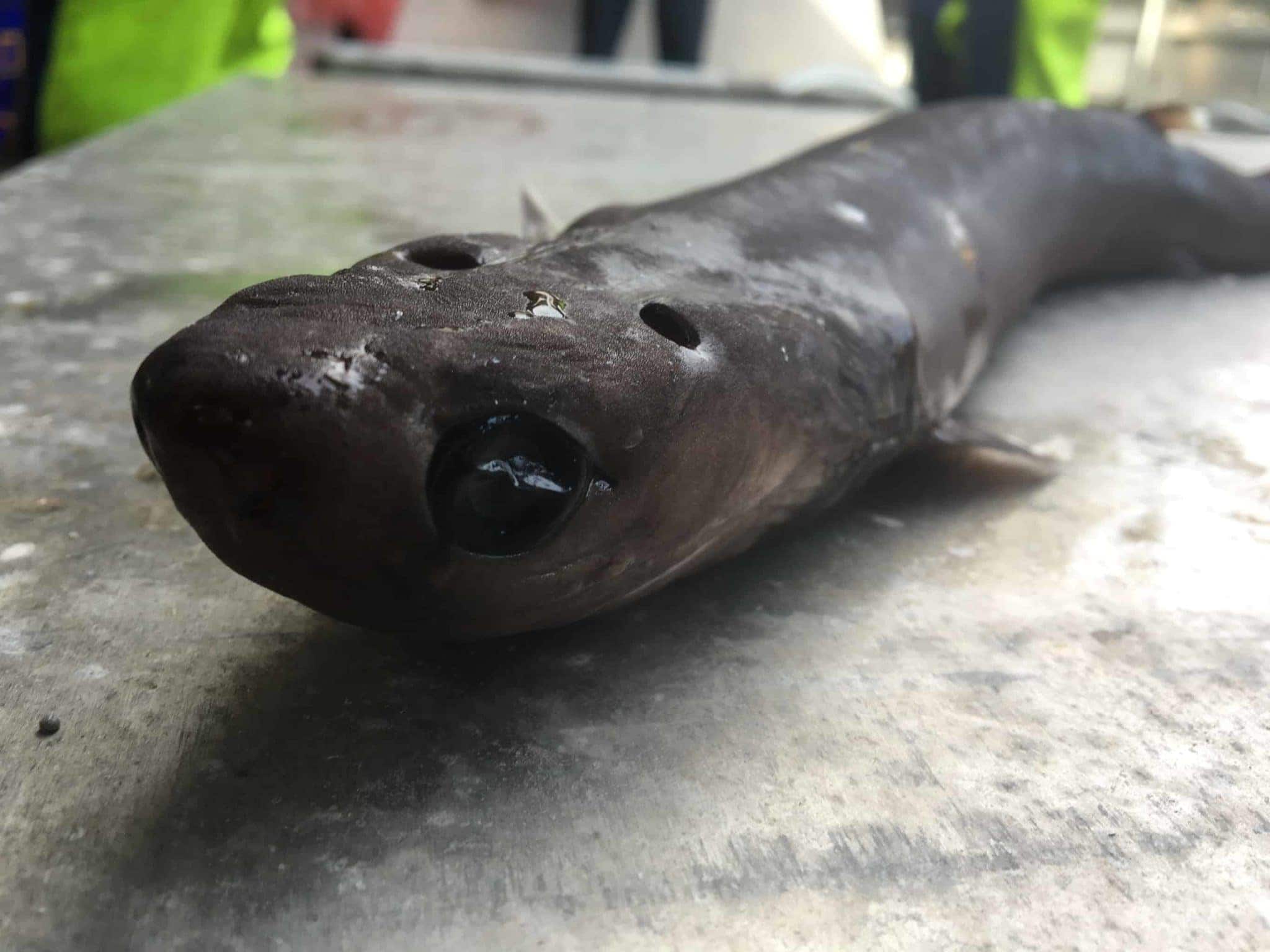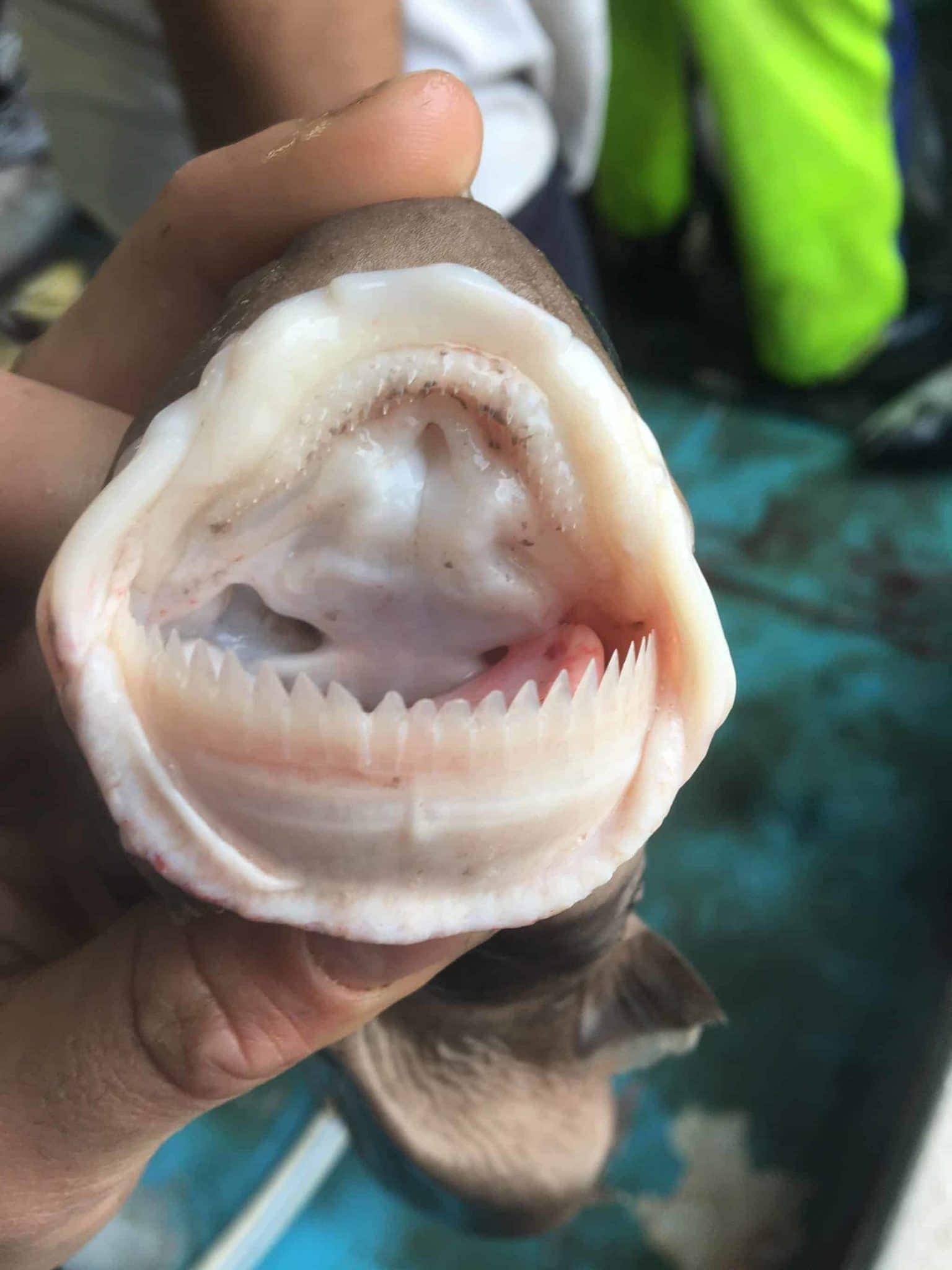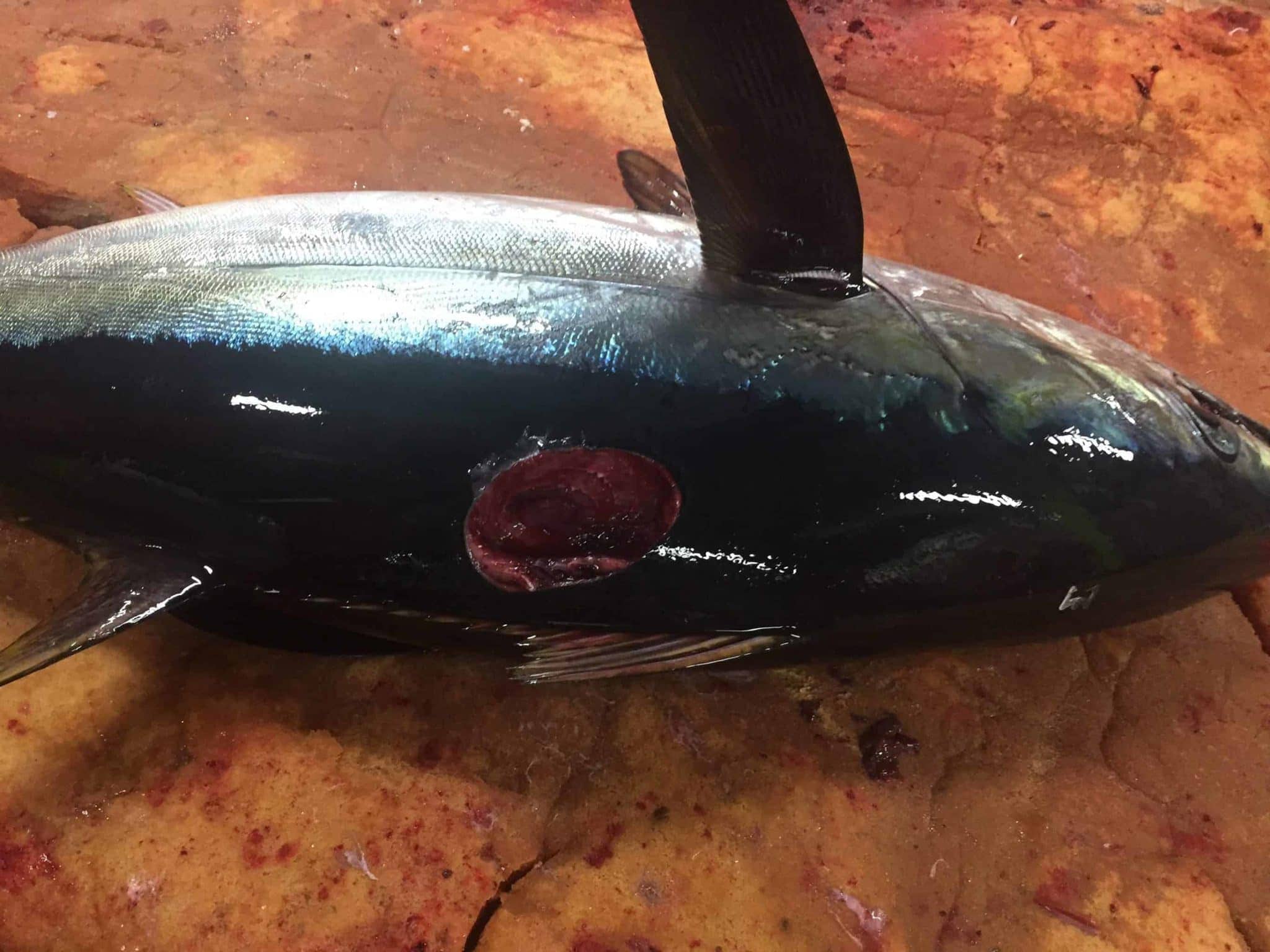Uncommon catch: Cookiecutter shark given to CSIRO for research
Few people have heard of or seen a cookiecutter shark. So when co-owner of Abbott Fisheries Todd Abbott caught one recently, he decided to hand it over to CSIRO for further research. We caught up with him to find out more, including his daughter’s reaction to the shark.
What’s your connection to the tuna industry?
I’m a third-generation owner of Abbott Fisheries, and I’m an operator in the Eastern Tuna and Billfish Fishery.
You recently caught a cookiecutter shark. Where did you catch it and how?
We caught the cookiecutter shark on the pelagic longline gear that we use to catch tuna and swordfish. This was approximately 49 nautical miles east of Port Macquarie on the NSW mid-north coast.

This cookiecutter shark was given to CSIRO for research purposes. Photo by Todd Abbott.
Is this the first time you’ve caught a cookiecutter shark?
We’ve caught two over the past 10 years, so it isn’t a regular occurrence to catch them, but it is very common to catch fish that have been attacked by these sharks.
What can you tell us about cookiecutter sharks?
The bottom jaw of the cookiecutter shark moves and the top jaw is fixed, which results in a bite that is perfect circle in shape, like that of a cookie cutter instrument you might find in your kitchen… hence the name. They also breathe through the top of their head where their gills are located, which is different to most sharks.

The cookiecutter shark has a circle-shaped bite. Photo by Todd Abbott.
You showed the shark to your 2-year-old daughter. What was her reaction?
She wanted to take it home in mum’s car!!!
What do you normally do with any sharks that you catch?
We catch a variety of larger sharks. We keep the sharks if they are already dead on the line and we release all live sharks that we accidently catch.

A wound caused by a cookiecutter shark. Photo by Todd Abbott.
You handed the cookiecutter shark over to CSIRO for research purposes. Why is such research important?
The more we can understand the marine environment, including the creatures that live in it and their habitat, the better we will be at managing interactions.
Thanks Todd.
—
A note to all fishers: if you come across any unusual or strange marine species, make sure you freeze it for Tuna Australia to find a home for it to advance marine biology.